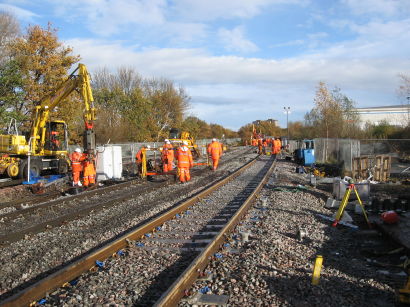THE NEW chief executive of Network Rail has ordered a partial break-up of the company, by creating semi-independent regional operations which will be run as far as possible as stand-alone businesses.
David Higgins, who only took over at the start of this month, said the move is ‘a significant change of emphasis’.
ATOC has been calling for Network Rail to be broken up into regional businesses for some time, as a first step towards eventual re-privatisation.
The first stage of the reorganisation will affect two routes, as Network Rail’s administrative areas are called. One is Scotland and the other is Wessex, which covers the South West Trains service area.
It will begin in April, when the present Route Directors will be dubbed Route Managing Directors.
Mr Higgins explained: “Network Rail has saved money and transformed the railway through central control but to make further improvements in all areas we now need to increase responsiveness at a local level.
“We’re devolving accountability to the route level so that we can get closer to our customers and be in a better position to deliver improvements to passengers and freight users, while reducing costs.
“Each new route managing director will, in effect, be running their own infrastructure railway business with significant annual turnover and resources.
“This represents a significant change of emphasis to give our people on the routes the ability and the means to deliver a bigger, better, more affordable railway. However, we’re determined not to undermine the progress that has been made, but to build on the strengths of what we’ve achieved.
"There will continue to be a critical role for a supporting centre that helps make the most of economies of scale. The railway still needs to be planned and operated as a network which operates seamlessly. And we must maintain the company’s focus on efficient and effective management of long-life railway assets.”
Passengers will want to know what the change will mean for them. At the very least, it should improve communications between Network Rail and the train operators, some of whom have been under fire for not providing accurate information, particularly when services are disrupted by bad weather or other problems.
Network Rail sources said the change is experimental. The company can count on the results being monitored closely by the Office of Rail Regulation, which is continuing to press for reductions in the amount the company spends.


